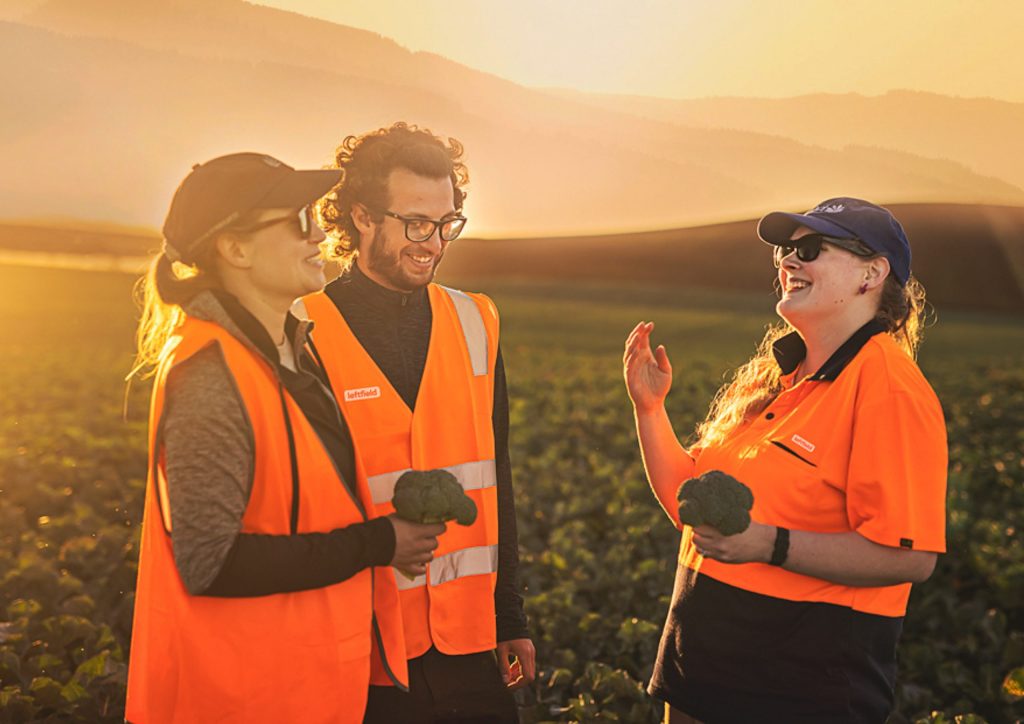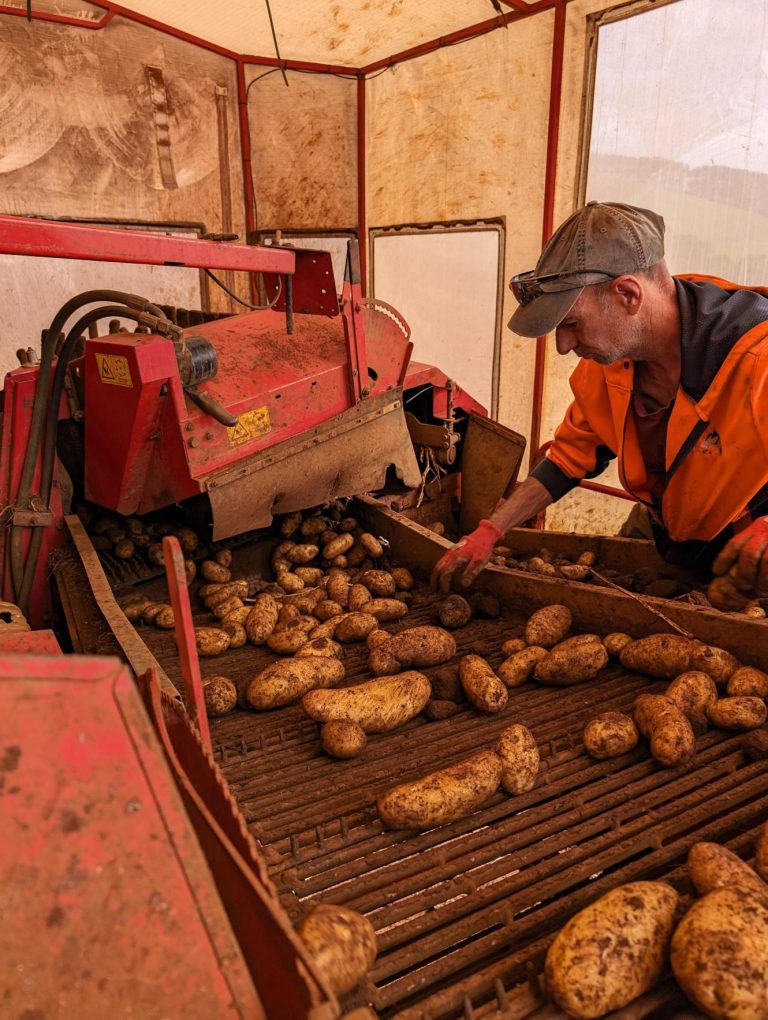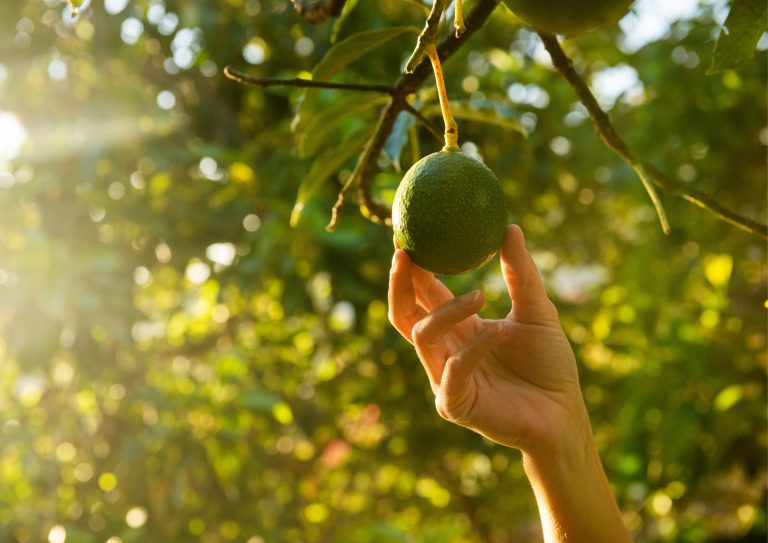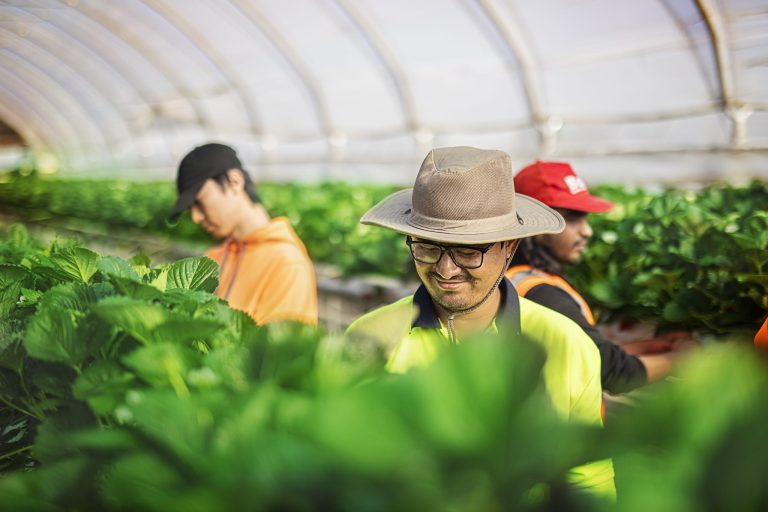In the rapidly changing landscape of horticulture and seasonal labour, there’s an increasing awareness that success is not just about the harvest. Now, more than ever, the focus is on the well-being of workers and the seamless operation of farms. That’s where the often-overlooked role of a Welfare Officer comes into play—a position that’s setting new standards for both farms and backpackers alike.
Beyond the Harvest: A Holistic View
Organisations that take a modern approach understand that well-being is an integral part of a successful harvest season. That’s why at Left Field, for example, we’ve taken the innovative step of adding a Welfare Officer to our team. The idea is to go beyond mere productivity to create a work environment that’s mutually beneficial for both our farm partners and our dedicated Lefties.
The Multifaceted Benefits of a Welfare Officer
Mental Health First Aid
Stress and anxiety can take a toll. A Welfare Officer can identify early signs of mental struggles, ensuring a healthier workforce that’s more engaged and efficient.
Skill Alignment
Imagine knowing you’re in the right job for your skillset and personality. This leads to greater job satisfaction and naturally boosts productivity—something any progressive organisation aims for.
Smooth Sailing: Conflict Resolution
A peaceful work environment contributes to heightened focus and productivity. A Welfare Officer can mediate conflicts, ensuring everyone can focus on their job without unnecessary distractions.
Safety Nets: Compliance and Safety
Safety is everyone’s business, but a Welfare Officer ensures it’s never overlooked. They make sure all safety and compliance standards are met, safeguarding both the farm and the workers.
The Work-Life Seesaw
A Welfare Officer helps maintain a fulfilling work-life balance, crucial for long-term job satisfaction and overall well-being.
The Symbiotic Relationship
With the inclusion of a Welfare Officer in the agricultural ecosystem, the benefits are manifold and extend to multiple stakeholders. Here’s how both farms and workers gain from this pivotal role:
For Farms:
- Increased Productivity: A Welfare Officer ensures that workers are mentally and emotionally well, contributing to higher levels of efficiency on the farm.
- Enhanced Stability: Consistent support and conflict resolution contribute to a more stable work environment, reducing turnover and training costs.
- Risk Mitigation: By overseeing safety and compliance, the Welfare Officer acts as an added layer of risk management, ensuring guidelines are adhered to.
- Greater Budgeting Efficiency: A stable, productive, and satisfied workforce enables better financial planning and resource allocation.
- Cultivation of Loyalty: Employees are more likely to stay and even return in subsequent seasons when they feel valued and supported, helping to build a reliable and skilled workforce over time.
For Workers:
- Well-being Support: The Welfare Officer serves as a dedicated point for mental health and well-being, making it easier for workers to seek help and resources.
- Skill Enhancement: The Welfare Officer can identify gaps in skills and recommend training, aiding in personal and professional development.
- Conflict Resolution: Having a neutral party to mediate disputes or grievances helps maintain a positive work atmosphere.
- Safety Assurance: Workers can focus on their tasks knowing that there’s someone ensuring that all safety protocols are in place and followed.
- Work-Life Balance: Guidance on managing stress and maintaining a healthy work-life balance can make the difference between burnout and a fulfilling work experience.
As we look toward the future, it’s clear that the most successful agricultural practices will prioritise not just yield, but also human factors. With roles like a Welfare Officer becoming part of the conversation, we’re entering a new era of sustainable and compassionate farming practices.
















